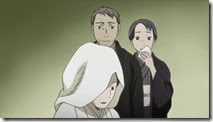 |
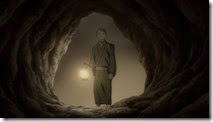 |
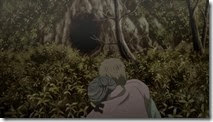 |
Mushishi continues to set a standard that’s nearly impossible for other anime to match.
It’s not really fair to compare Mushishi with other anime, because they aren’t trying to do the same things. But it just reinforces the notion that Mushishi is a timeless series, because it seems so out of place on an anime schedule in 2014 that it might as well be a different medium altogether. I suppose the fact that this series can still find an audience, even if it’s quite a bit smaller than the one it had in 2006 if you go by disc sales, is a small miracle.
“The Fragrant Darkness” is another stand-alone masterpiece in the Mushishi canon, a story that’s alternately creepy, heartwarming and unsettling. It features Ginko only in a supporting role, as so many chapters do, yet there’s no sense that his presence is unduly missed because the experience is so immersive. Mushishi nearly always has an ability to transport the viewer inside the story it’s telling, but that’s even more crucial here because “Darkness” is the tale of one man’s vision of his world, and of how that vision may not be the entire truth of his reality.
On a rainy night, Ginko arrives at the doorstep of a simple farmer named Kaoru (Furukawa Toshio) who lives with his wife Iko (Kakinuma Shino) and their young daughter. Ginko, as he usually does, offers his services by way of payment for the hospitality, but Kaoru says everything is fine and routine – “the best sort of life” as Ginko calls it – and is content with listening to Ginko’s fantastic tales of life as a mushishi. It soon becomes clear, though, that there are strange elements in Kaoru’s existence – a memory triggered by the smell of flowers, especially at night, always hovering on the edge of his vision but never quite becoming clear.
It’s only when an older Kaoru, years later, stumbles on a strange cave on the way home from harvesting sansai that we see the truth – he’s living the same life, over and over. When he passes through the cave he emerges as a young boy (played by Takizawa Hijirinami), the son of a wealthy family in the sake business. There are unpleasant events regarding the son of the sake brewer Kaoru’s father has humiliated which lead to a drastic change of fortunes for Kaoru’s family, who eventually turn to farming – and there he meets the young Iko (Ota Miku) – significantly, in the act of smelling cherry blossoms. Eventually Ginko once again comes calling on a rainy night, and this time Kaoru shares his unsettling confusion with the visitor and learns the truth of what may be happening to him.
This is a very simple story, one without much mystery or overt drama to it – it’s not difficult to figure out what’s happening to Kaoru and that a Mushi (the Kairou) may be behind it. But there’s a great sense of realism to it – we’re sucked into the pleasant daily routine of Kaoru, and feel the vague sense of panic always hovering over him because he realizes the truth. The obvious question presenting itself from the beginning is whether Kaoru will choose to end this cycle, even after Ginko has clarified the situation – is it Heaven or Hell, reliving the same years with the woman you love over and over? Ultimately he seems to make the hard but correct choice – not to linger over regrets of the past but to face the uncertain future – but the Kairou’s long reach finds him even here, and seems to manipulate him into an even more difficult decision.
The ending of this episode is a tangle of conflicting emotions, and it’s not clear whether it’s a tragic or uplifting one – or something of both. It leaves you thinking about it long after the credits have rolled, which Mushishi so often does. And it’s worth pointing out that the authenticity of the episode is greatly helped once again by the casting – not only using children as the young Kaoru and Iko, but casting Furukawa and Kakinuma – a real-life married couple who’ve been together for decades – as the adult versions. It’s just another example of how this adaptation makes Mushishi an even more engrossing and immersing experience than the brilliant source material.
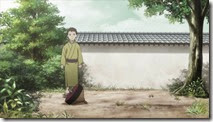 |
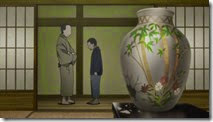 |
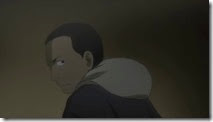 |
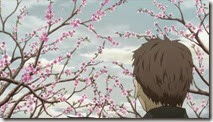 |
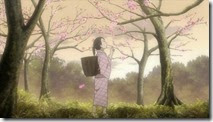 |
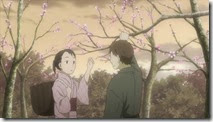 |
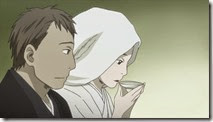 |
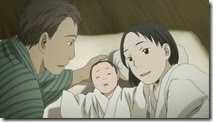 |
 |
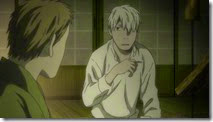 |
 |
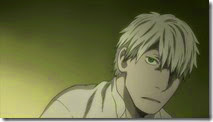 |
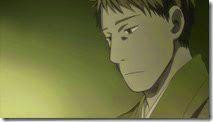 |
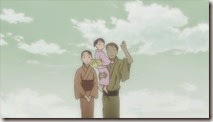 |
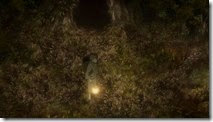 |
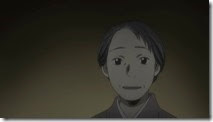 |
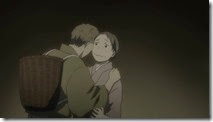 |
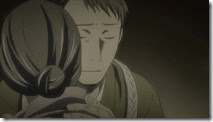 |
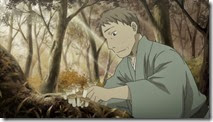 |
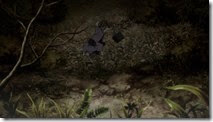 |
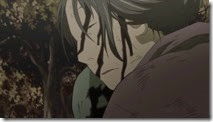 |
 |
 |
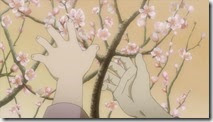 |
 |
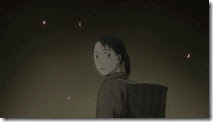 |
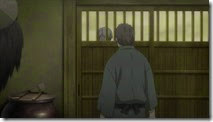 |
End Card:
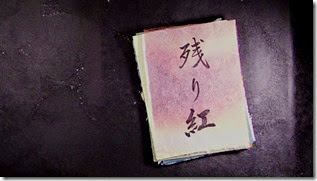 |


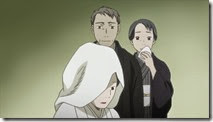
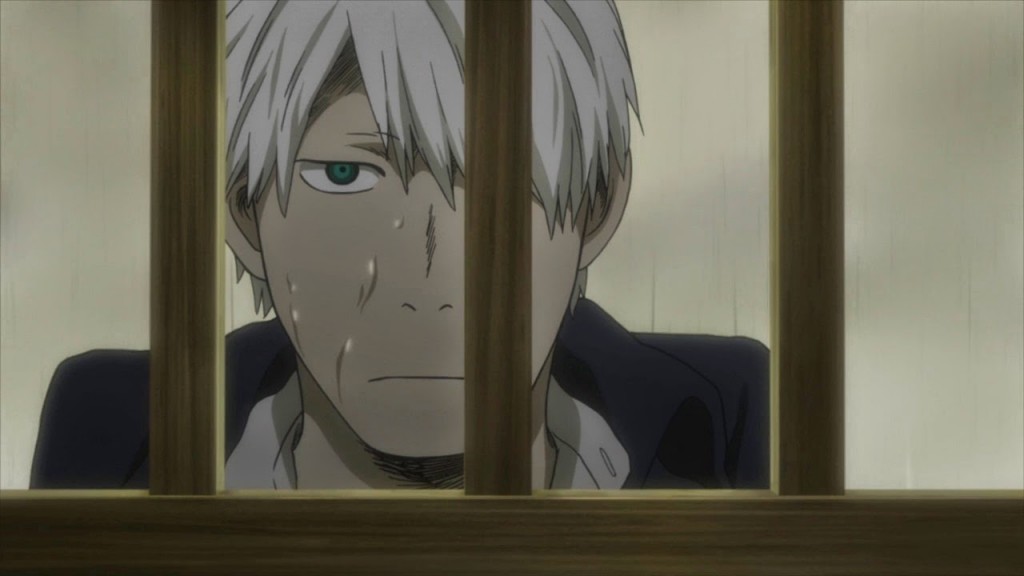
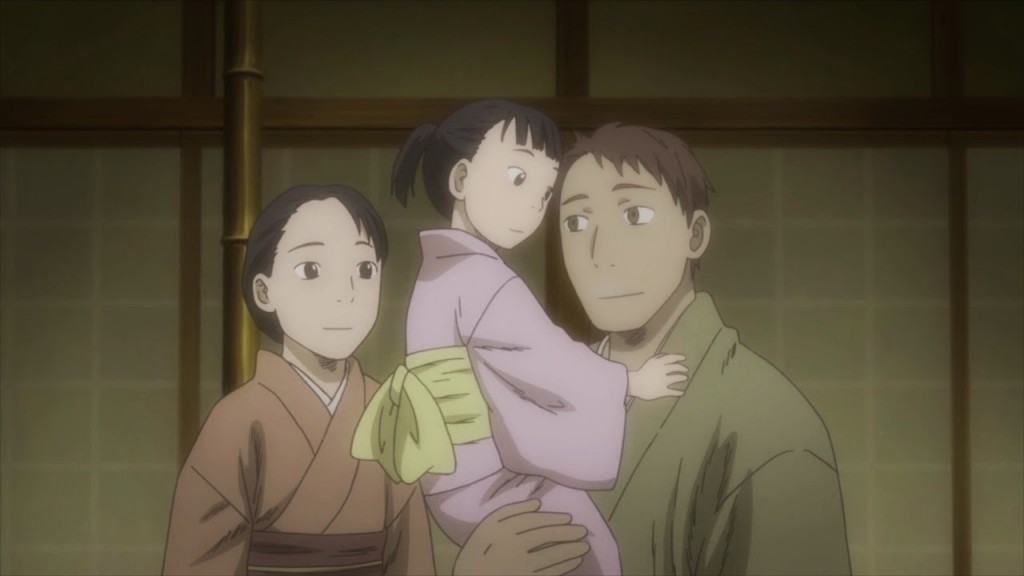
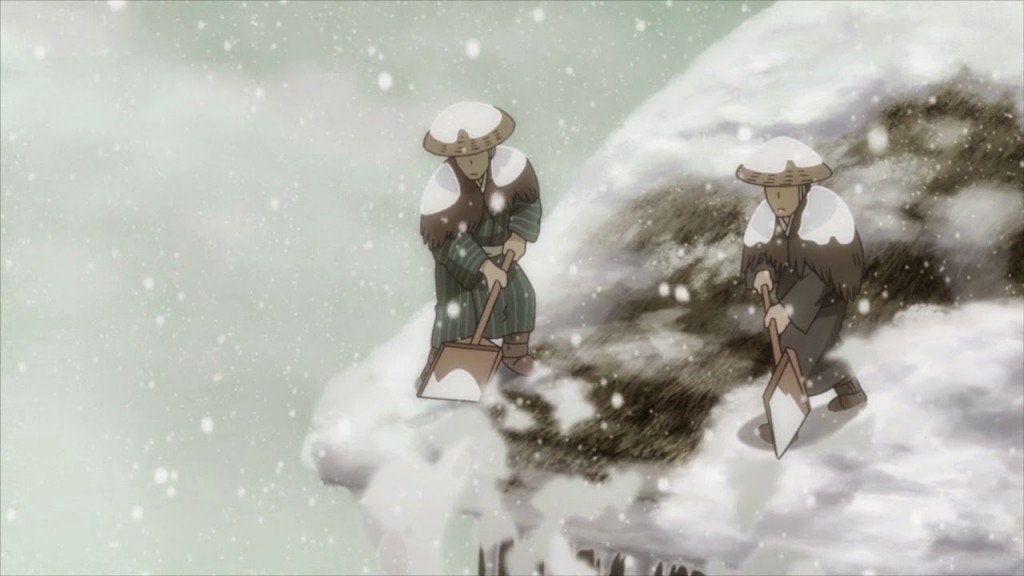
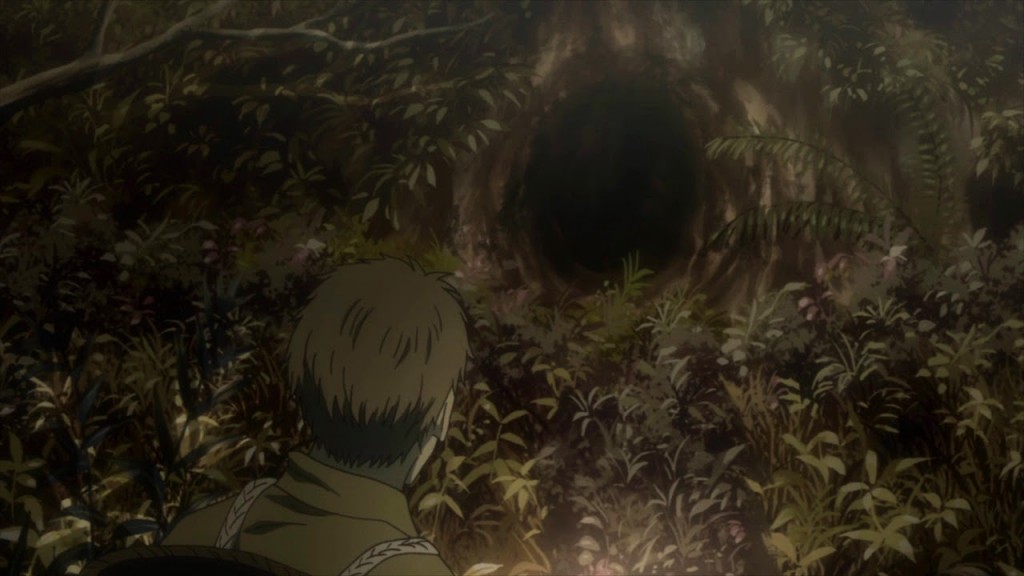
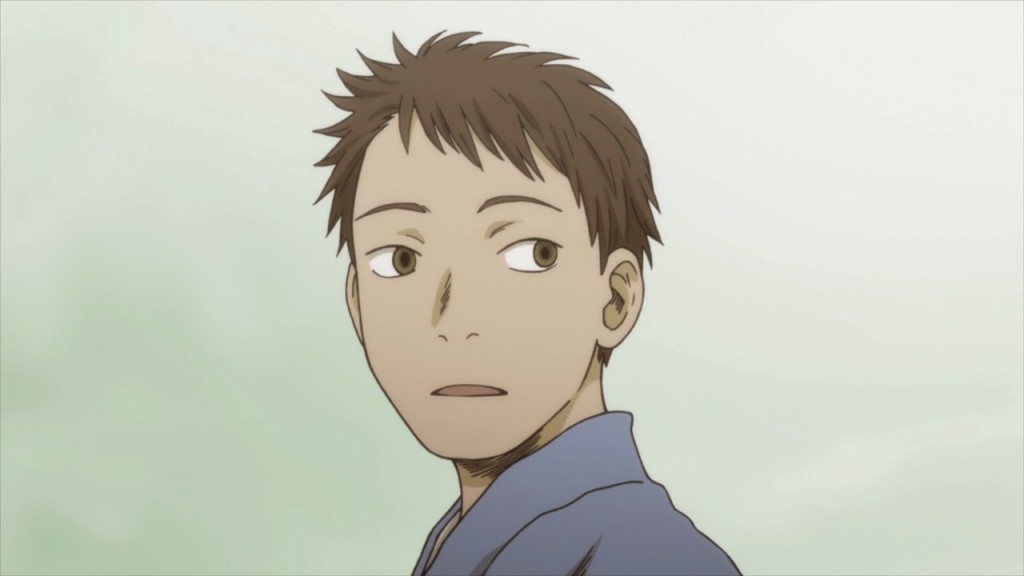
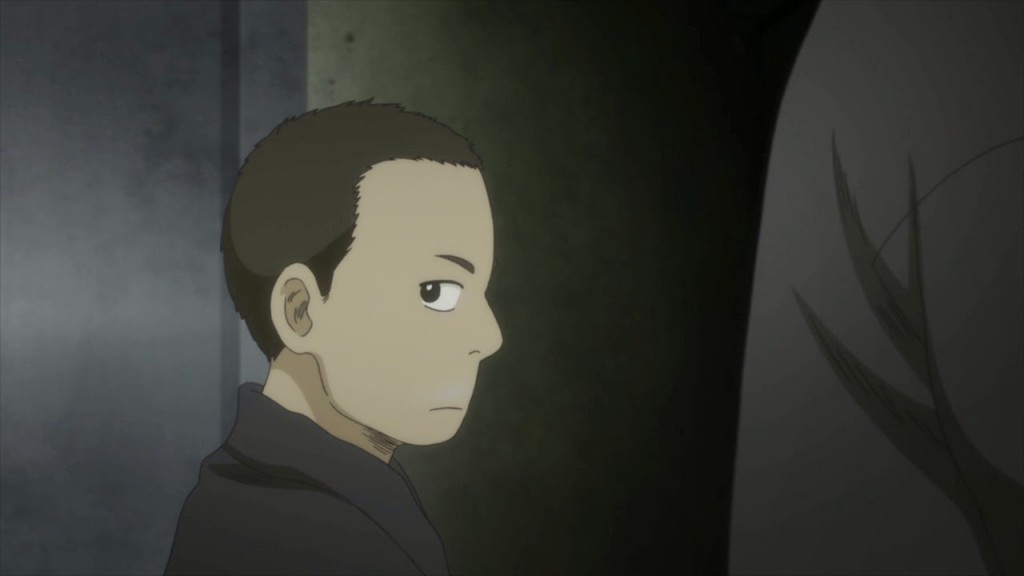
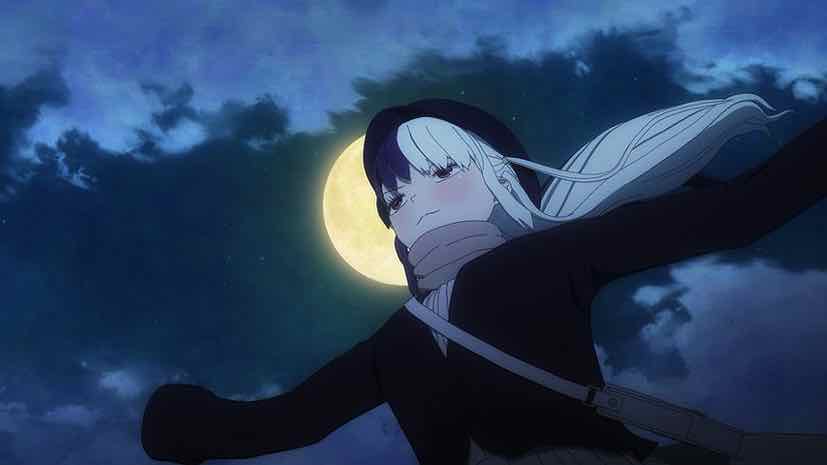
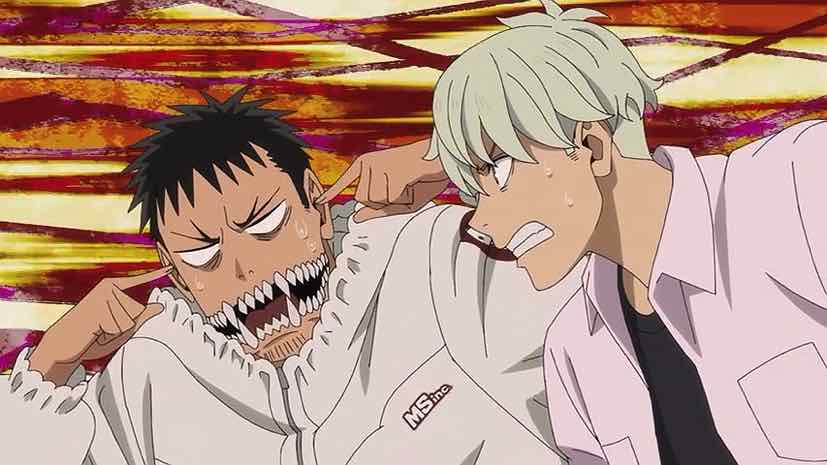
thedarktower
October 26, 2014 at 8:08 ammushishi never stops to charm us. even when it touches a theme like loop-hole in time. the amazing thing is the mushishi describe and tell the story with very few words and with just following the characters events each and every time and see their facial expressions, that's enough to tell us everything. and as you said, we are already drawn into the story.
the ending is a bit conflicted and somehow vague but it's so mushishi so I just love it. it tells us that it's impossible to change the future. but what that mister did for some extra moments with his wife..sure it might be wrong but who are we to judge if we haven't been in such tough calling situation. is it really that wrong?maybe. yet, the ending also suggest a chance for escape and redemption from this loop with another visit of Ginko when the wife pays more attention to him.
such a simple and beautiful story in only 20 minutes. this is really mushishi's magic.
segafreak2000
October 26, 2014 at 11:01 amI already liked that chapter in the manga a lot, but the anime made it even better. This episode is probably in my top 3 of Mushishi episodes so far (the other two being Cloudless Rain and In the Cradle), though they haven't animated my favorite chapters yet. Soundtrack was spot-on as well, it's too bad that there's quite a while until the ending theme gets released. Overall an amazing episode.
Though I also have to say that this is also one of the chapters that benefitted the most from being adapted. The original chapter was very good, yes (for reference, chapter 48), but I think it just works better in the anime. Alright, all chapters do, but this one in particular, I think. Especially due to the soundtrack and voice acting.
A shame that there's not much more left though – 8 more episodes plus another special, I'm assuming (and hoping, since I think for Mushishi, adapting the two-parters into one episode just works better). This anime will absolutely be missed once it's over.
vincee87
October 26, 2014 at 5:56 pmOne of the things I find most comforting about Mushishi is the time period of the show. When people led simpler lives and we can depend on the kindness of strangers to give us shelter from the rain for the night. When entertainment meant hurdling around a warm fire sharing wondrous tales of foreign lands.
Gary Cochran
October 26, 2014 at 11:38 pmIt was a very haunting episode. Yet another reason I am glad I love anime.
TajRoy
October 29, 2014 at 3:33 amFirst episode of Mushi-shi I've watched, and it was amazing. The atmosphere created through the light music, ambience, and art direction in so engrossing, beautiful and haunting. And the story here is such a haunting and thought-provoking story, easily one of the best time travel stories I've ever heard spun.